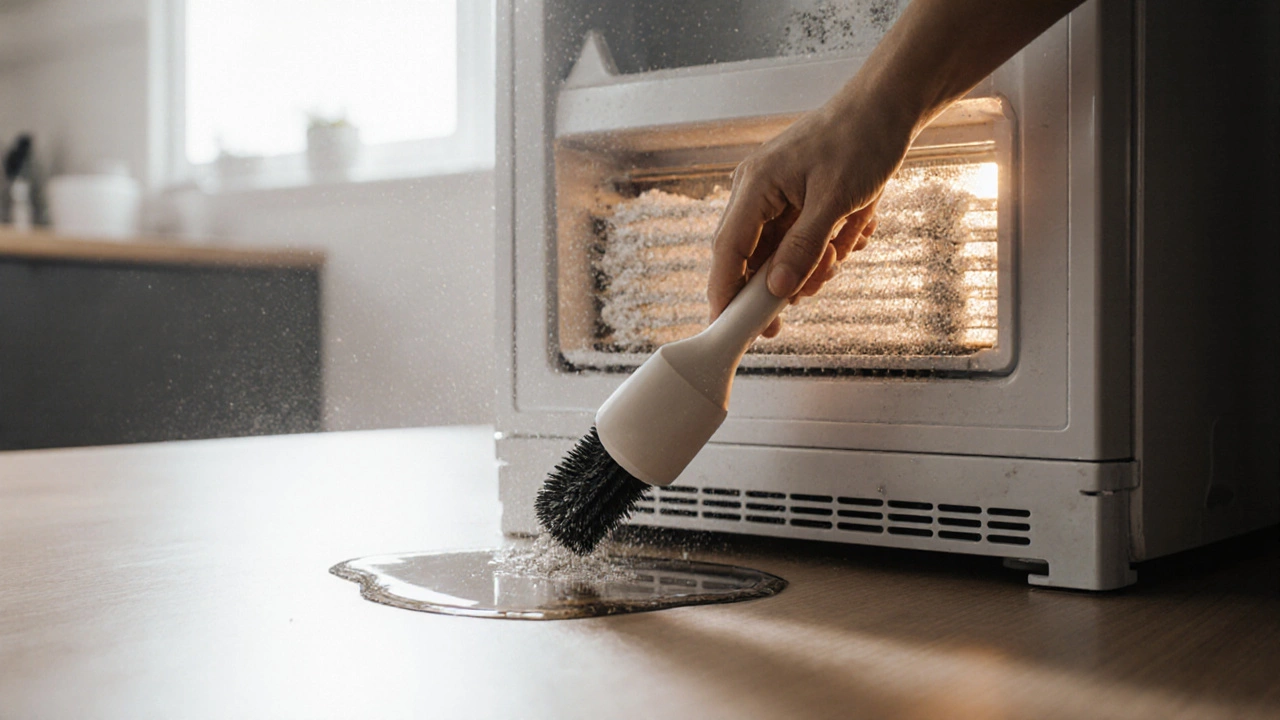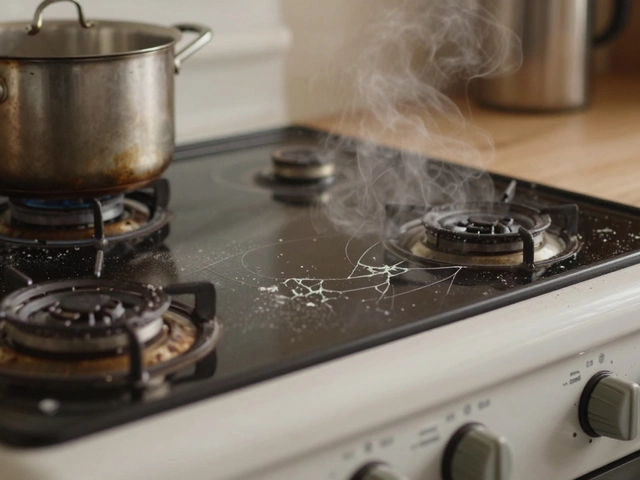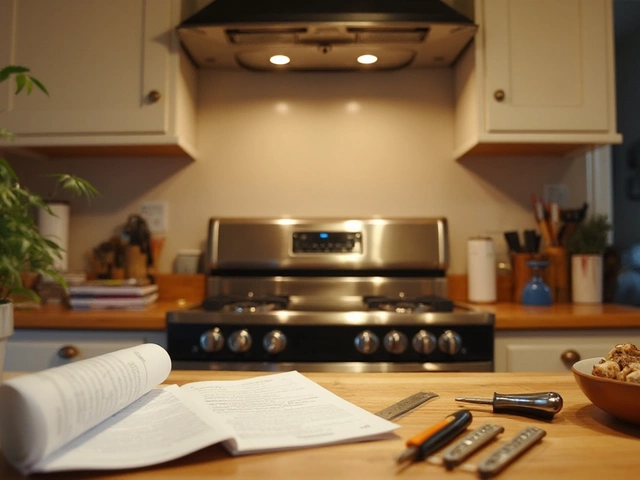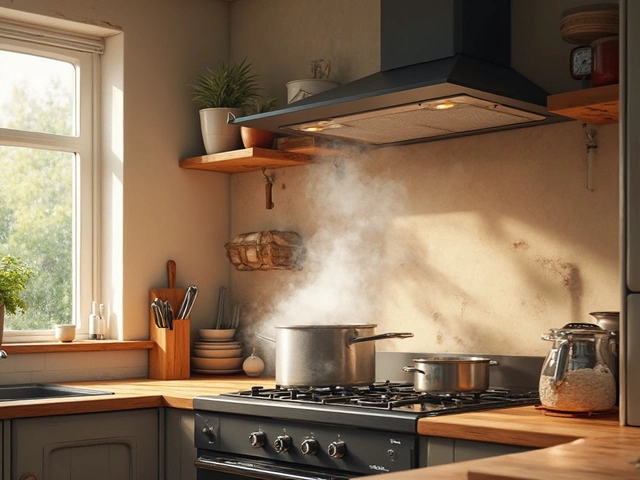Appliance Service Cost Estimator
Estimate potential savings from regular maintenance versus repair costs for common household appliances. Based on data from the article about household appliance care.
Ever stood in your kitchen wondering why your fridge is humming louder than usual, or why your dishwasher won’t drain? You’re not alone. Most households rely on four key appliances every single day - the fridge, washing machine, dishwasher, and oven. These aren’t just conveniences. They’re the backbone of daily life. And when they break, life slows down fast.
The Fridge: Your Food’s Lifeline
Your fridge keeps food safe, fresh, and ready to eat. But it’s also one of the most power-hungry appliances in your home. In Adelaide’s hot summers, a fridge running inefficiently can spike your electricity bill by up to 30%. If your fridge is over 8 years old and starts cycling on and off too often, it’s likely struggling with a failing compressor or dirty condenser coils. Dust buildup on the coils is the #1 cause of early fridge failure. A quick clean every six months can add years to its life.
Signs your fridge needs service: water pooling under it, food freezing when it shouldn’t, or a warm back panel. Don’t wait until everything spoils. A professional check-up costs less than replacing spoiled groceries.
The Washing Machine: More Than Just Clean Clothes
Washing machines handle up to 200 loads a year in an average Australian household. That’s a lot of spin cycles, water pumps, and motor stress. When the drum starts shaking violently or you hear a grinding noise, it’s usually a worn drum bearing or broken suspension spring. These aren’t DIY fixes. Trying to replace them yourself often leads to more damage.
Front-loaders are especially prone to mold buildup in the rubber seal. That smell? It’s not just gross - it’s a sign of trapped moisture that can rot the drum housing over time. Clean the seal monthly with vinegar and water. And never overload the machine. Overloading strains the motor and drum bearings. Most machines fail between 8 and 12 years. If yours is hitting 10, consider a service check before it leaves you with a pile of dirty laundry.
The Dishwasher: Hidden Problems Behind the Door
Dishwashers are quiet workhorses - until they stop draining or leave your dishes covered in soap residue. The most common issue? A clogged filter or faulty drain pump. Many people don’t realize their dishwasher has a removable filter at the bottom. Clean it every two weeks. If you use gel pods, they can leave sticky residue that gums up the spray arms.
Hard water is a big problem in Adelaide. Limescale builds up on heating elements and spray nozzles, reducing cleaning power and increasing energy use. If your dishes come out cloudy or your dishwasher takes longer to finish, it’s time for a descaling cycle using citric acid or a commercial dishwasher cleaner. A professional can also check the water inlet valve - if it’s leaking or not opening fully, your dishwasher won’t fill properly.
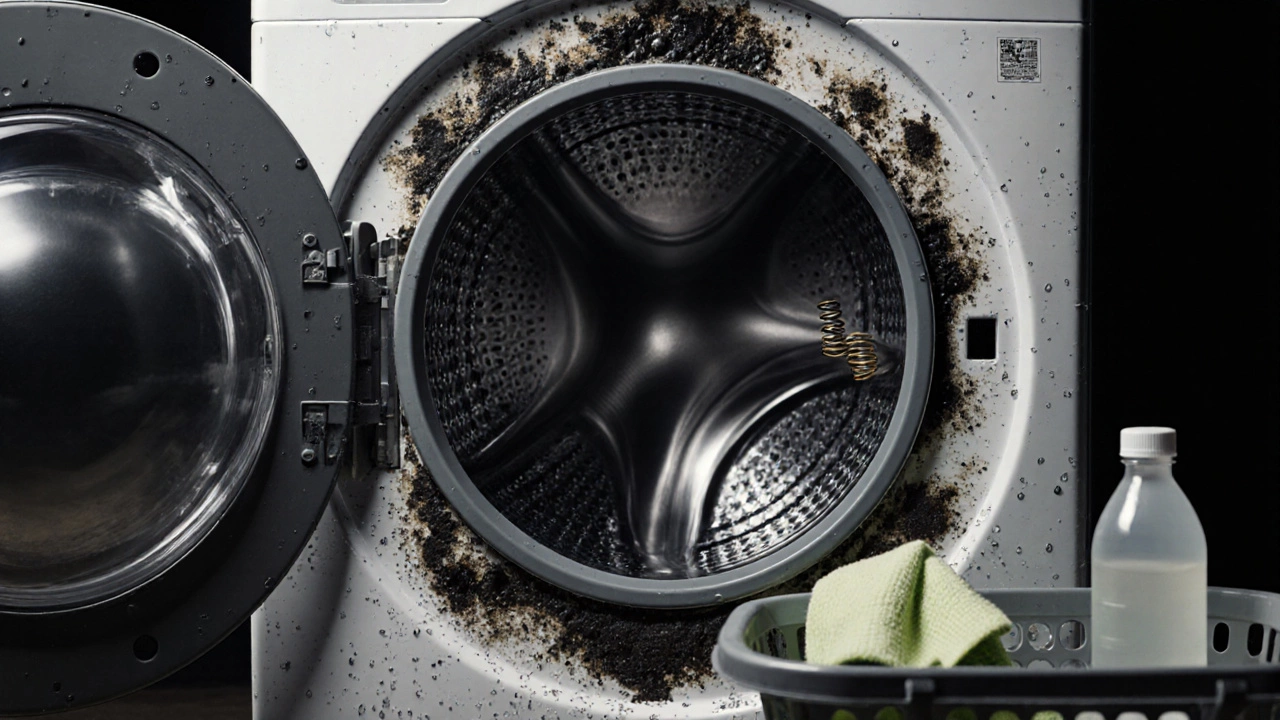
The Oven: Heat That Needs Attention
Whether it’s a gas or electric oven, the heating element is the heart of the appliance. If your oven takes forever to preheat or heats unevenly, the element might be failing. In electric ovens, you can often see if the element is cracked or discolored. In gas ovens, a weak flame or delayed ignition points to a faulty igniter or gas valve.
Self-cleaning ovens are convenient - but they’re also hard on the control board. Every time you run the clean cycle, the temperature spikes to over 500°C. That kind of heat stresses electronics. If your oven’s digital display is flickering or buttons don’t respond after a cleaning cycle, the control board may be damaged. Replacing it costs less than a new oven - if caught early.
Also, check the door seal. A cracked or loose seal lets heat escape, making your oven work harder. You can test it by closing the door on a piece of paper. If you can pull it out easily, the seal needs replacing.
Why Regular Service Matters
Most people wait until their appliance breaks completely. That’s expensive. A $150 service call to clean coils, check belts, or replace a worn gasket can save you $800 on a premature replacement. Manufacturers design these appliances to last 10-15 years - but only if they’re maintained.
Think of appliance service like car maintenance. You don’t wait for the engine to seize before changing the oil. Same goes for your fridge, washer, dishwasher, and oven. A yearly check-up catches small problems before they turn into big ones.
And don’t ignore warning signs. Strange noises, odd smells, or sudden changes in performance aren’t normal. They’re signals. Listening to them saves money, time, and stress.
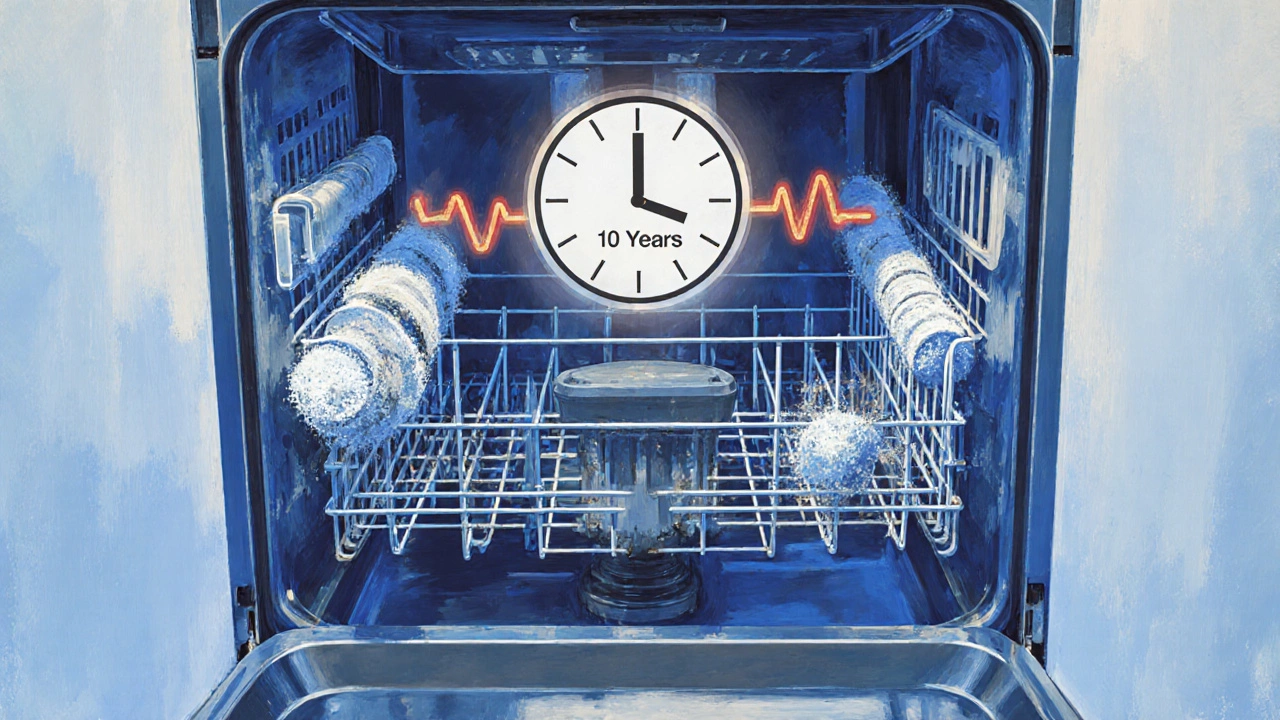
What to Do When Something Breaks
First, unplug the appliance. Safety first. Then, check the basics: Is it plugged in? Is the circuit breaker tripped? Is the water supply turned on for the washer or dishwasher? Sometimes the fix is that simple.
If it’s still not working, don’t open it up unless you know what you’re doing. Many modern appliances have electronic controls that can be damaged by static electricity or incorrect wiring. A qualified technician will have the right tools and training. Look for certified service providers - they follow manufacturer guidelines and use genuine parts.
Keep your receipt and model number handy. Most warranties are voided if non-certified parts are used. And if your appliance is over 10 years old, ask the technician if repair makes sense. Sometimes replacing it with a newer, energy-efficient model pays for itself in lower bills.
How to Extend Appliance Life
- Keep fridge coils clean every six months
- Run a vinegar cycle in your dishwasher monthly
- Wipe the rubber seal on your washing machine after each use
- Don’t slam oven doors - it stresses hinges and seals
- Use the right detergent - too much soap clogs systems
- Don’t overload machines - it strains motors and bearings
These small habits add up. They keep your appliances running smoothly and delay the day you need to buy new ones.
When to Replace Instead of Repair
There’s a tipping point. If a repair costs more than half the price of a new appliance, it’s usually time to replace. That’s the rule of thumb most technicians use. Also, if your appliance is over 10 years old and needs a major part like a compressor or control board, replacement is often smarter.
Newer models are up to 40% more energy efficient. A 10-year-old fridge might use 1,200 kWh a year. A new Energy Star model uses around 700. That’s $200+ saved annually on electricity in Adelaide’s high-cost grid.
And warranties. New appliances come with 1-2 years of coverage. Repaired ones rarely do. That peace of mind matters.
What are the four most important household appliances?
The four most important household appliances are the refrigerator, washing machine, dishwasher, and oven. These are used daily in most homes and are essential for food storage, cleaning, and meal preparation. When they fail, daily routines break down quickly.
How often should I service my appliances?
Most appliances benefit from a basic check-up once a year. Fridges and washing machines should be cleaned every six months to prevent dust and mold buildup. Dishwashers need monthly descaling in hard water areas. Ovens should be inspected if you notice uneven heating or strange smells. Regular maintenance prevents costly breakdowns.
Can I repair appliances myself?
Simple tasks like cleaning filters, wiping seals, or replacing door gaskets are safe for homeowners. But anything involving electrical components, gas lines, motors, or control boards should be left to professionals. Incorrect repairs can cause fires, leaks, or void warranties. When in doubt, call a certified technician.
Why does my washing machine smell bad?
A smelly washing machine usually means mold or mildew trapped in the rubber door seal or drum. This happens when moisture stays inside after cycles, especially with low-temperature washes or liquid detergents. Clean the seal monthly with vinegar and water, and run a hot empty cycle with baking soda every few weeks to kill bacteria.
Is it worth repairing a 12-year-old oven?
It depends on the issue. If it’s a simple thermostat or igniter problem, repair makes sense. But if the control board or heating element needs replacing, and the cost is over $400, replacement is usually better. A new oven will be more energy-efficient, safer, and come with a warranty. A 12-year-old oven is near the end of its lifespan anyway.

